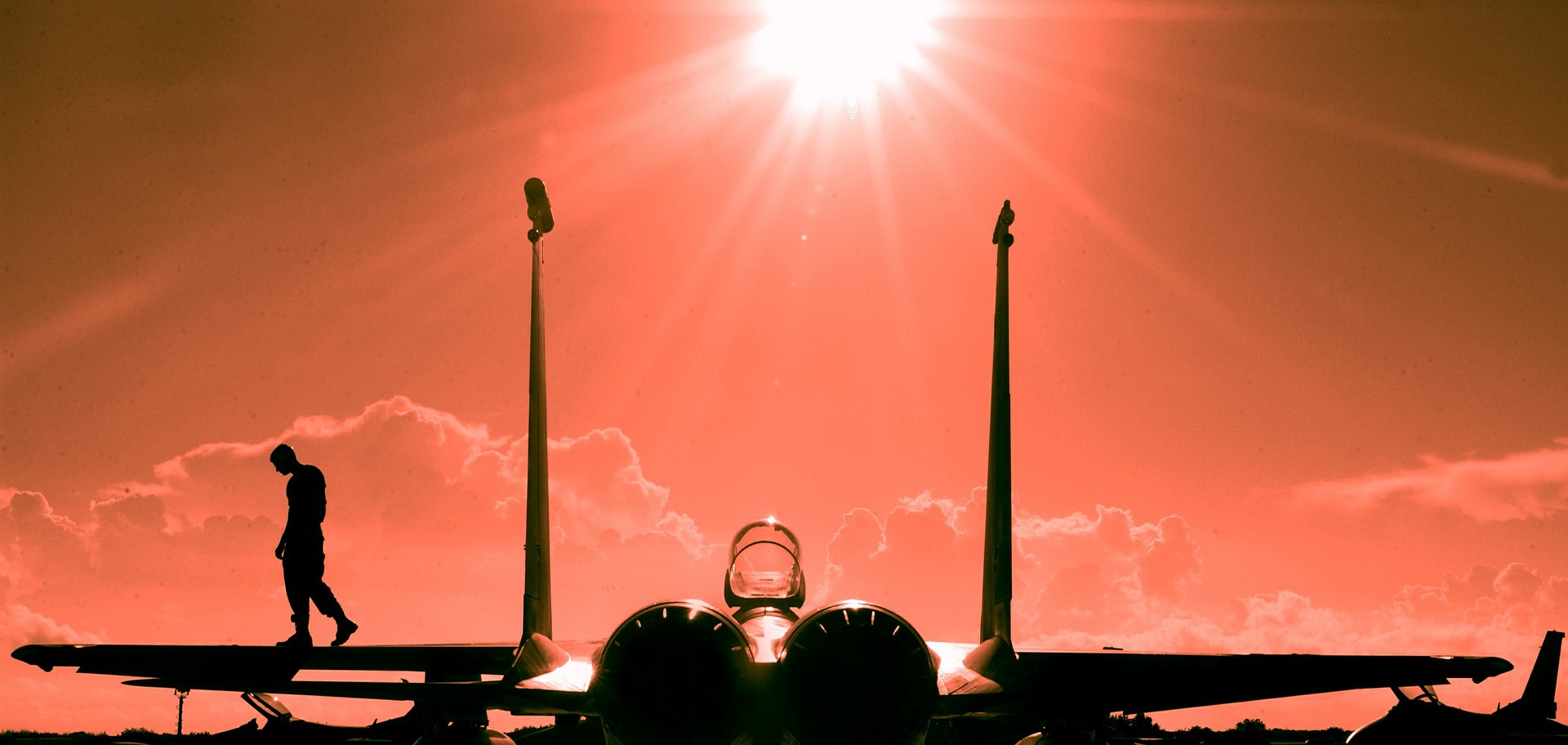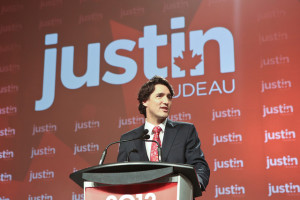Canadian ISIS Air Mission Withdrawal: Prioritizing National Interests


Real change, that’s what the Liberals’ campaign had promised Canadians and it was clearly a winning formula. The Liberal Party, led by Justin Trudeau, won a majority government at the recent elections on October 19, securing 184 seats. They account for 54% of available seats, which represents a major shift in the interests of Canadians. After nearly a decade under Stephen Harper’s Conservative rule, this election reflects Canadians’ national interest in seeing Canada take on a new role both domestically and internationally.
Trudeau promised change, and on his first day after being elected, change is what he brought to Canada. On October 20, Trudeau announced the end of the Canadian combat mission in both Iraq and Syria.[i] He had spoken with the United States President Barack Obama and explained to him that he was committed to ending the air support Canada was providing in the fight against the Islamic State in Iraq and Syria (ISIS). He assured that Canada would continue its humanitarian efforts and would expand the training of Iraqi fighters.
The Canadian mission in Iraq and Syria known as Operation IMPACT began as early as August, 2014 while Harper was in power. The mission was part of a wider US-led coalition of over sixty states participating in the de-escalation of violence of the extremist group ISIS. Canadian participation involves the Air Task Force-Iraq (ATF-I) as a part of the Joint Task Force-Iraq (JTF-I) which is responsible for the air strike campaign taking place in both Iraq and Syria. JTF-I has deployed approximately 600 Canadian Armed Forces.[ii] Canada supplied six CF-188 Hornet Fighter aircrafts, one CC-150T Polaris Ariel Refueller and two CP-140M Aurora Surveillance aircrafts to the mission.[iii] Since its first aerial attack on November 2, 2014, Canadian forces have conducted over 1665 strikes. These airstrikes were aimed at ISIS targets to destroy both infrastructure and equipment, and prevent their territorial expansion. On March 30, 2015, the mission was extended an additional twelve months, until Spring 2016.[iv]
What Trudeau made clear throughout his campaign was that he intended to change Canada’s engagement in the fight against ISIS. Specifically, he advocated for the termination of the air campaign as he did not see that it was serving Canada’s national interests. Rather he promoted a different view, one that emphasized the training of domestic Iraqi forces to allow them to fight their own war.[v] Trudeau expressed that this change was more reflective of Canada’s national interest, thus prioritizing it over international interests.
In order to understand whether or not Trudeau’s appeal to national interests is accurate, it is important to identify what exactly these interests are. Polls taken in March 2015 showed Canadians’ support for the Harper government’s proposal for an extension and expansion of Canada’s military engagement in Iraq and Syria.[vi] A majority of Canadians supported the extension of the Canadian Armed Forces mission against ISIS; sixty-six percent of respondents had voted in favor. Clearly in the recent months Canadians have not been strikingly opposed to Canada’s engagement in the region and are interested in ensuring their security.

So which national interests is Trudeau referring to? It is the interest to change Canada’s role on the international level. Trudeau offered Canadians a change for Canada on the world stage that we would work constructively with other actors. Under the Harper government, it is said that Canada’s international role deteriorated, as it withdrew from the international community and acted unilaterally. Over forty percent of respondents answered that they believed that Canada’s international reputation has worsened in the past ten years.[vii] Thus, the Liberal campaign offered to serve the national interests of Canadians to once again be the global leader they once were.
In military terms, the impact of the Canadian air forces’ withdrawal from the fight against ISIS will be minimal. Canadian forces did not account for a large percentage of the aerial bombardments against ISIS targets.[viii] Although the impact of the withdrawal of Canadian air support will have little military impact there is, however, an impact on the perception of Canada by international actors. Canada is in a transition process, resulting in changes in its foreign policy direction. This is a shift away from the hard power used under the Harper government towards more soft diplomatic power. There has been a rearrangement in priorities, emphasizing national over international interests. Trudeau seeks to increase Canada’s multilateral involvement with international partners, thus focusing on Canada’s constructive engagement to promote peace, humanitarian initiatives, and combating climate change. These populist appeals proved to be successful among Canadians during his campaign and will likely serve as the basis for his foreign policy as he moves forward in his primary steps as Prime Minister. [ix]
On his first day after being elected Prime Minister, Trudeau acted on implementing this new Canadian worldview. Thus far, his actions are congruous with his words as he made good on his election campaign promise to withdraw Canadian air forces from the region. But how likely is it that he will continue to stay true to his foreign policy throughout his rule? When confronted by security threats that exist in the international system, Trudeau’s idealistic worldview may be challenged. The deterioration of security in Iraq and Afghanistan, the continued civil war in Syria and the resulting humanitarian crisis, the proliferation of extremist groups in both the Middle East and North Africa pose the question of whether Trudeau recognizes what the realities he’s confronting. Although new ideals are important, leaders are inevitably constrained by a constant stream of threats that face their nation.
In an interview in June, Trudeau dismissed an important question that addressed the issue of when he would be willing to use force, if not against a group as ghastly as ISIS.[x] If not against an extremist group known by the United Nations for “gross systematic and widespread abuse” of human rights and acts that constitute crimes against humanity- then who?[xi] With an inexperienced leader, Canada may have been offered promises that the Prime Minister cannot keep, not because he does not desire to uphold and implement these national interests, but because he does not yet recognize the realities that constrain his policy options.
Real change is what Canadians have been promised, and real change has been demonstrated. The true challenge to Trudeau’s new foreign policy will be how this ‘real change’ can withstand the pressures the international system poses.
First photo from Pixabay.
Endnotes:
[i] (Murphy 2015)
[ii] (Government of Canada 2015)
[iii] (Government of Canada 2015)
[ix] (Chase 2015)
[x] (Trudeau 2015)
[xi] (Logan 2013)
[xii] (Quan 2015)
[xiii] (Jacobs 2015)
[ix] (Liberal Party 2015)
[x] (Akin 2015)
[xi] (United Nations Security Council 2014)
Works Cited:
Akin, David. “Trudeau’s nonsense answer to a question voters should ask.” Toronto Sun. June 24, 2015. http://www.torontosun.com/2015/06/24/trudeaus-nonsense-answer-to-a-question-voters-should-ask.
Chase, Steven. “Government votes to extend, expand military mission against IS.” Globe and Mail. March 30, 2015. http://www.theglobeandmail.com/news/politics/government-votes-to-extend-expand-isis-mission-into-syria/article23699643/.
Government of Canada. Operation IMPACT. August 24, 2015. http://www.forces.gc.ca/en/operations-abroad-current/op-impact.page.
—. Operation IMPACT – Air Task Force-Iraq Airstrikes. June 12, 2015. http://www.forces.gc.ca/en/operations-abroad-current/op-impact-airstrikes.page.
Jacobs, Ben. “Canada withdrawal will not hinder battle against Isis, US insists.” The Guardian. October 22, 2015. http://www.theguardian.com/world/2015/oct/22/canada-withdrawal-not-hinder-battle-against-isis-us-insists.
Liberal Party. “Trudeau offers new leadership to reclaim Canada’s place in the world.” Liberal. September 28, 2015. https://www.liberal.ca/trudeau-offers-new-leadership-to-reclaim-canadas-place-in-the-world/.
Logan, Nick. Majority of Canadians favour extending anti-ISIS mission: Poll. March 13, 2013. http://globalnews.ca/news/1897768/majority-of-canadians-favour-extending-anti-isis-mission-poll/.
Murphy, Jessica. “Canada to end airstrikes in Syria and Iraq, new prime minister Trudeau says .” The Guardian. October 21, 2015. http://www.theguardian.com/world/2015/oct/21/canada-end-airstrikes-syria-iraq-new-prime-minister-trudeau.
Quan, Douglas. “Canada’s reputation on the world stage is waning, new poll says.” National Post. September 28, 2015. http://news.nationalpost.com/news/canada/canadas-reputation-on-the-world-stage-is-waning-but-stephen-harper-isnt-to-blame-new-poll-says.
Trudeau, Justin. “Statement by Justin Trudeau regarding the extended mission in Iraq and Syria.” Liberal. March 24, 2015. https://www.liberal.ca/statement-by-justin-trudeau-regarding-the-extended-mission-in-iraq-and-syria/.
United Nations Security Council. “Security Council Adopts Resolution 2170 (2014) Condemning Gross, Widespread Abuse of Human Rights by Extremist Groups in Iraq, Syria.” United Nations. August 15, 2014. http://www.un.org/press/en/2014/sc11520.doc.htm.
